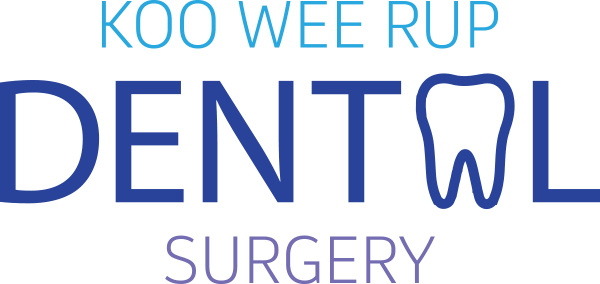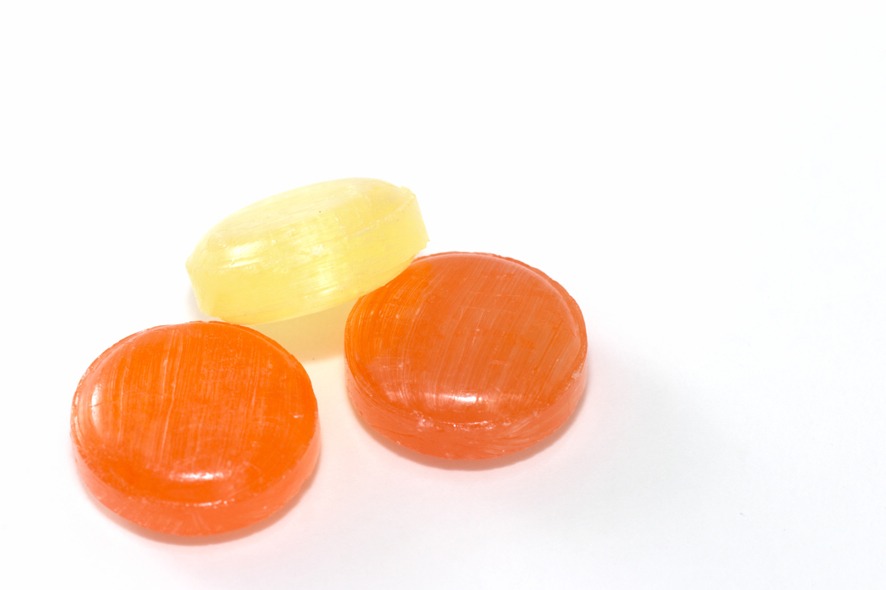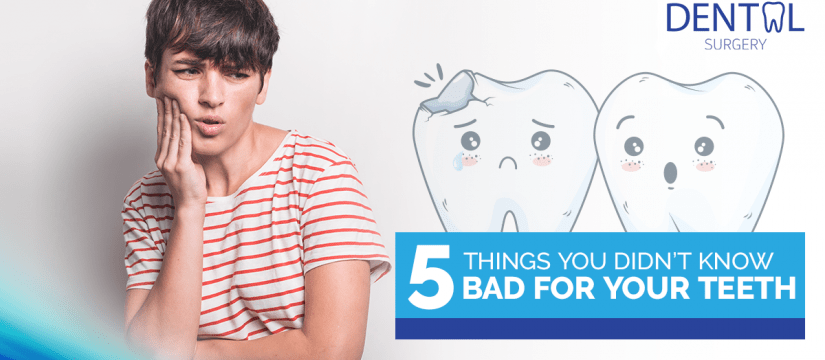
Most dentists spend a lot of time promoting positive, proactive good oral health messages.
Hopefully, that means that most people have heard them often enough for them to have sunk in.
But we’re just going to mention them one more time (for context):
- Brush your teeth twice a day
- Floss at least once a day
- Don’t eat too many sweets
- Visit the dentist for six-monthly check-ups
But what about things you might be doing that could have an adverse effect on your oral health
Could you be doing some of these without even realising that they’re bad for your teeth?
1. Brushing your teeth too soon after eating
When you’ve just finished eating or drinking (particularly soft drinks or fruit juice), the pH level in your mouth is more acidic, which means your tooth enamel is more vulnerable.
If you brush your teeth straight away it’s more likely that you’ll wear away at the enamel, so it’s best to wait at least 15 minutes after eating or drinking before brushing (and longer is even better).
2. Regular snacking
Eating a meal produces quite a bit of saliva, which is essential to your oral health. However, a bit of a snack won’t produce much saliva – after all, you’re only chewing for a short time.
Without enough saliva, more bits of food might stay in your teeth for longer. It’s best to avoid snacking too frequently and, when you do have a snack, choose something low in sugar and starch.
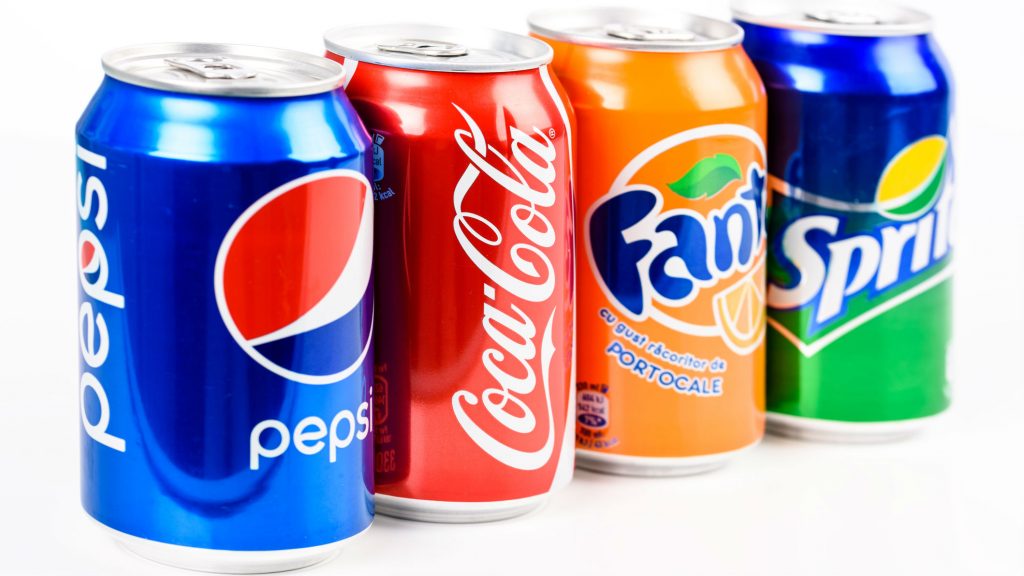
3. Drinking soft drinks
There’s been plenty of talk about how soft drinks impact on your general health, with a focus on their sugar content. It’s hard to get your head around the fact that soft drinks can have up to 11 teaspoons of sugar per serving!
But it’s even worse than just sugar, as far as your teeth are concerned: soft drinks also contain phosphoric and citric acids, which eat away at tooth enamel.
And diet soft drinks may have even more acid in the form of the artificial sweeteners.
4. Sucking on cough drops
You’ve got a sore throat, so cough drops are the logical choice. But, while they might (hopefully) do a good job of soothing your throat, don’t be ‘sucked in’ to thinking they’re actually healthy.
Most are loaded with sugar which reacts with the sticky plaque that coats your teeth. Bacteria in the plaque then converts it into an acid that eats away at tooth enamel.
So, limit the amount of time you spend sucking on those lozenges … and (after waiting a while) brush your teeth if you can.
5. Using your teeth as a tool
Because tooth enamel is the hardest thing in the human body, we tend to think of our teeth as a handy tool. After all, we’ve always got our teeth ‘on hand’.
While opening plastic packaging with your teeth may be a lot quicker than going to the utility drawer and getting the scissors, there’s not much that makes dentists cringe more than seeing someone use their teeth as a tool.
The same applies to cracking open shellfish or nuts with your teeth. Your teeth should be used for eating only. Any other ‘activity’ is asking for trouble, in the form of chips or cracks.
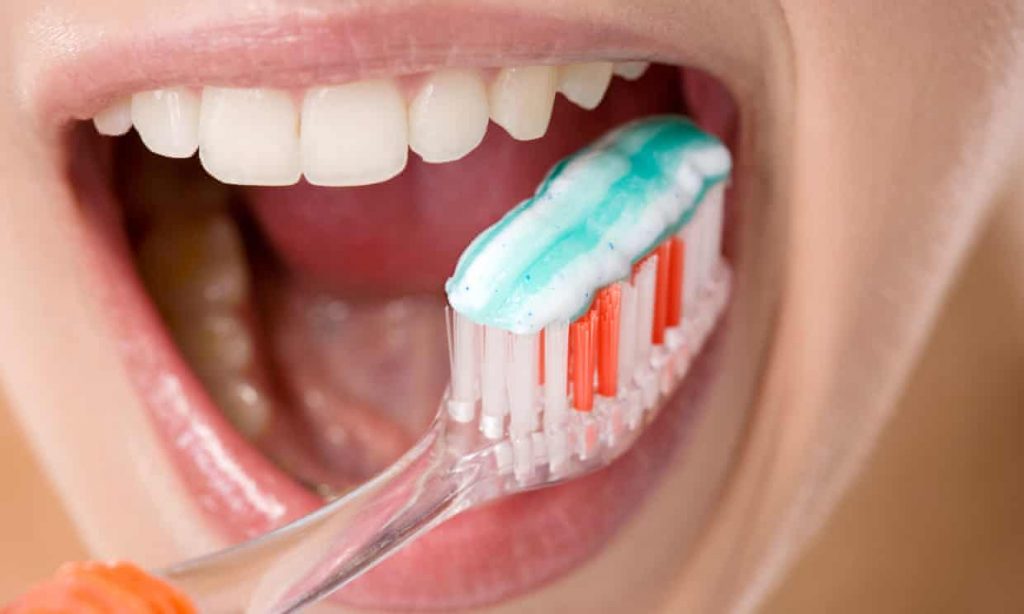
Small changes can make a big difference
There’s no getting away from the fact that some people like chewing. And, once you start chewing things other than food at mealtimes, it can be hard to stop.
If you do feel the need to chew, sugarless gum is the best option as it triggers the flow of saliva, which can make teeth stronger and protect against enamel-eating acids.
You should also avoid anything sugary or acidic, so try snacking on crunchy vegetables like carrots and celery or equally healthy cheese and (sugar-free) yogurt, which also contain vital calcium.
A great option for kids who like something a bit sweeter is raisins, as they don’t contain sucrose (as most fruits do) and are also a source of phytochemicals, which may kill cavity-causing plaque bacteria.
At the same time, it’s not only what you eat but when you eat that can make a difference. If you can’t go without something sugary and sweet, have that after dinner rather than between meals.
If you have any questions about looking after your teeth better, we’ll be happy to answer them.
And we’ll see you soon for your next check-up.
